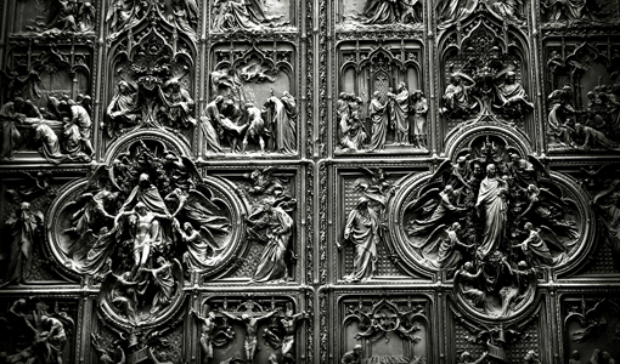In light of the presidential election, can anyone doubt that we need to produce a generation of well-informed, committed Catholics to participate in public life and conversation? Exit polls confirmed that among the most compelling concerns among voters, outpacing both “terrorism” and “the economy,” was the question of “moral values.” Catholic character formation was at the center of our political conversation for months. It was a remarkable witness to the power of the Catholic faith and its importance in American civic life.
It’s for precisely this reason, and a host of others, that we need to develop integrated, disciplined, faithful and intelligent Catholics who will lead the national conversation among the next generation. Whatever challenges lie ahead for the country, Catholicism is front and center among the issues.
That’s why we’re hopeful about and committed to developing a program that will instill in the student a comprehensive encounter with the Catholic intellectual tradition in all its robust splendor. We’re hopeful because we see a steady stream of young people entering our program needing no convincing of its value or significance for their lives. Because of your efforts, spreading the word about our program, we experience a growing awareness and enthusiasm for Catholic Studies. Some twenty high school students traveled from South Dakota to get a taste of Catholic Studies and what Catholic college life can offer. Thanks to the generosity of Father Jim Shea and others, we can count on developing continually increasing interest in the program.
We’re committed because we understand the culture into which these young people will enter, with its complexities and challenges, its promise and rewards. Young people are especially eager to enter contemporary life with a vital Catholicism, one that is well-informed and prepared to engage issues. They have good reason to believe they are needed. This past election was remarkable, in part, for the significant time given to issues central to Catholic moral tradition, its social teachings and its commitment to protecting innocent life.
We hosted discussion sessions, Engaging Truth, designed to offer students a range of views concerning Catholics and political life. We’ve inaugurated the Murphy Institute to address issues of law and public policy locally and abroad. A new topics course examines the issues of Catholicism and our habits of consumption. And we continue to offer courses seeking to integrate our faith and professional formation. We’re developing a new course, The Church and Culture, as part of our sequence of courses for the major. The animating conviction of the course is the notion that the church is social in nature, is compelled to consider public life and is called to serve as a witness of hope. The economic, political, legal and social dimensions are all addressed in light of the foundational, doctrinal convictions about Jesus Christ and the Church. This capstone experience came about as a result of students, who insisted that they be adequately prepared to evangelize in contemporary life.
Our faith has never been more vital to public life. And though presidential politics may seem like a remote and distant prospect now that we’ve completed the election, we shouldn’t forget that some of the men and women faced with the responsibility to participate in the next presidential election just walked in our door as freshmen in Catholic Studies. They’ll be ready; you can count on it.







